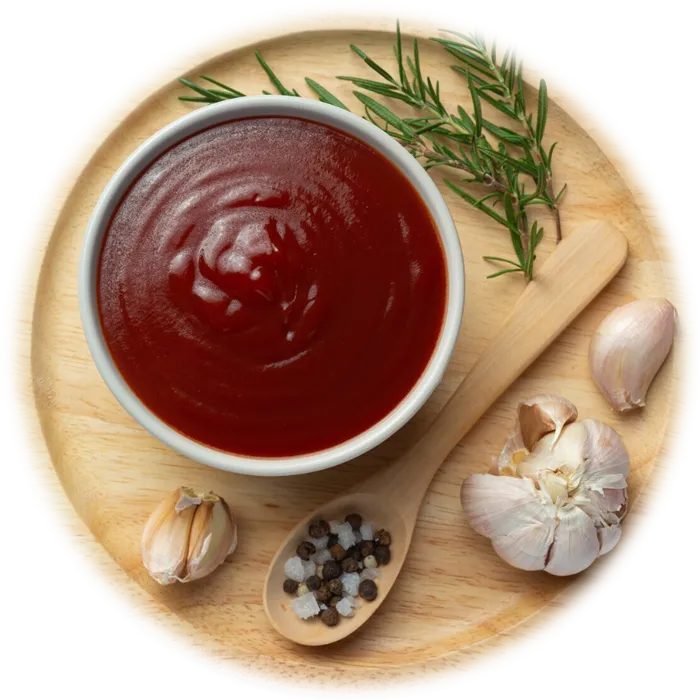
Nutritional properties of Barbecue Sauce
Energy :
120.00 Kcal / 100g
Category : Spices & Sauces
Group : Sauces
Composition And Nutritional Value :
Barbecue sauce is a flavorful condiment typically made from ingredients like tomatoes, vinegar, sugar (often molasses or high-fructose corn syrup), mustard, and various spices such as paprika, garlic powder, and onion powder. It is usually sweet, tangy, and smoky in flavor. Nutritionally, barbecue sauce is relatively low in calories but can be high in sugar and sodium, depending on the brand and type. Some varieties contain additional nutrients, such as vitamin C from vinegar and antioxidants from the tomatoes used in the sauce.
Health Benefits :
Barbecue sauce, particularly those made with tomato paste, provides antioxidants like lycopene, which is beneficial for heart health and may reduce the risk of certain cancers. However, due to its sugar and sodium content, barbecue sauce should be consumed in moderation, especially for individuals with dietary restrictions such as those managing high blood pressure or blood sugar levels. Some homemade or low-sugar barbecue sauces can offer healthier alternatives while still providing a rich flavor.
Culinary Uses :
Barbecue sauce is primarily used as a marinade, baste, or dipping sauce for grilled meats, such as ribs, chicken, and burgers. It is a key component in American barbecue cuisine, adding flavor to slow-cooked meats or vegetables. Barbecue sauce can also be used as a topping for sandwiches, burgers, or even in cooking, such as in casseroles or as a sauce for pizza. Different styles of barbecue sauce, such as Kansas City-style, Carolina mustard, or vinegar-based sauces, offer unique flavor profiles and can be used to complement various dishes.
Types :
There are many varieties of barbecue sauce, each with distinct flavors and regional styles. The most common types include Kansas City-style, which is thick, sweet, and tomato-based; Carolina-style, which is tangy and vinegar-based; and Texas-style, which often includes a spicier, smoky flavor with tomato and chili peppers. Other variations include mustard-based barbecue sauce, popular in South Carolina, and fruit-based sauces, such as apple or peach barbecue sauces, for a sweeter, tangier profile. Each region’s sauce reflects its cultural preferences and the cooking methods used.
Shopping And Storage Tips :
When purchasing barbecue sauce, look for one that suits your flavor preferences and dietary needs, as some brands offer sugar-free, low-sodium, or organic options. Store barbecue sauce in a cool, dry place before opening. Once opened, it should be refrigerated to maintain its freshness and flavor. Most barbecue sauces have a long shelf life, but it is best to use them within 6 months after opening for optimal taste and quality. Be sure to check for any separation or changes in texture before using.

